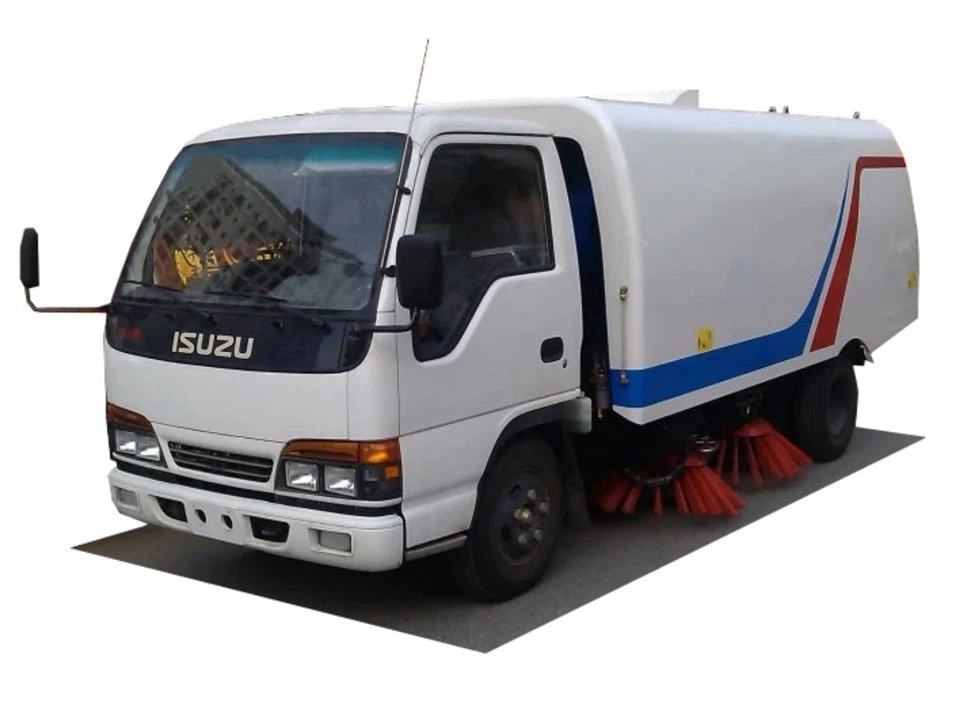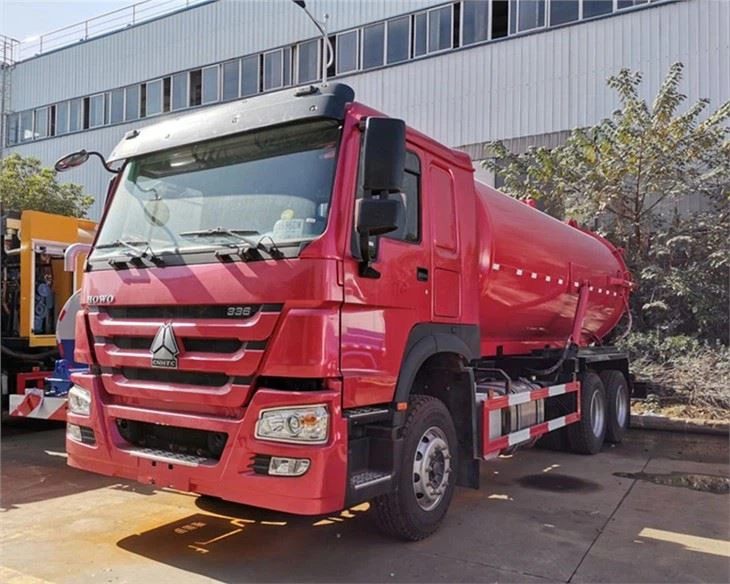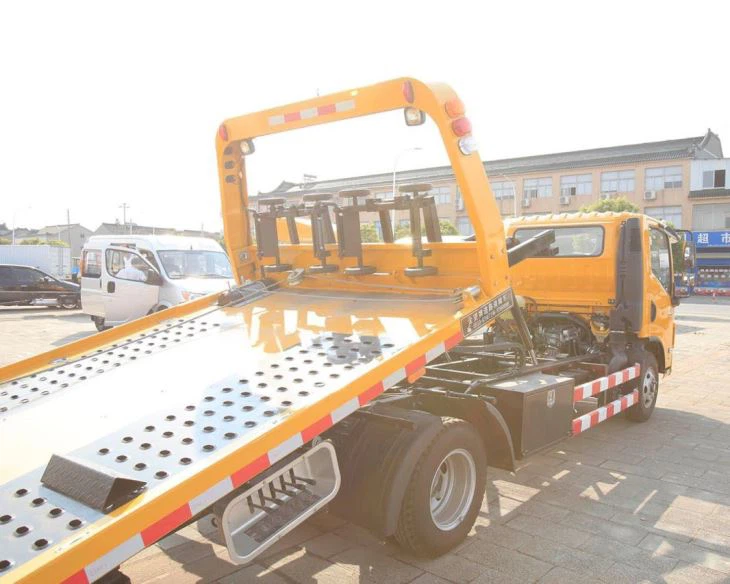Everything You Need to Know About Water Tanker Trucks

Water tanker trucks play a crucial role in modern infrastructure and logistics, addressing the growing need for water supply in various sectors. This article will explore the different aspects of water tanker trucks, from their design and uses to maintenance tips and frequently asked questions.
What is a Water Tanker Truck?
A water tanker truck is a vehicle specifically designed to transport water. The tank is usually made of materials that can hold large volumes of water safely, and these trucks are equipped with pumps for loading and unloading the water as needed.
Types of Water Tanker Trucks
Water tanker trucks come in various sizes and designs, depending on their intended use. Below are some common types:
- Municipal Water Tankers: Used by towns and cities to deliver water for public use and construction projects.
- Agricultural Water Tankers: Designed for farms and irrigation systems to provide water to crops and livestock.
- Fire Tankers: Equipped with pumps and hoses for firefighting efforts in rural areas.
- Construction Water Tankers: Supplying water for dust control and mixing concrete on construction sites.
How Water Tanker Trucks Work
Water tanker trucks operate by using gravity or pumps to distribute water. Here’s how the process generally works:
Loading the Water
The loading process involves connecting the truck to a water source, which can be a municipal supply, well, or reservoir. The pump is activated to fill the tank.
Transporting the Water
Once filled, the truck can transport the water over short or long distances. Drivers must be aware of the regulations regarding water transport in their area to ensure compliance.
Unloading the Water
Water can be unloaded using a gravity-fed system or through a pump. In many cases, the truck may be equipped with a hose for easy distribution at the destination.

Uses of Water Tanker Trucks
Water tanker trucks serve multiple purposes across different sectors:
Agricultural Uses
In agriculture, water tanker trucks provide essential water for irrigation, livestock, and other farm needs. For instance, farmers often use water tankers during drought conditions to support crop growth.
Construction Sites
Water is vital in construction projects, not just for mixing concrete but also for managing dust. Water tanker trucks are frequently seen on construction sites for these purposes.
Emergency Services
Fire departments often utilize water tankers during emergencies, especially in areas where hydrants are scarce. These trucks help combat wildfires by delivering large quantities of water swiftly.
Municipal Supply
Cities and towns utilize water tankers to provide water to residents, especially during peak demand seasons or when water main issues arise.
Choosing the Right Water Tanker Truck
When selecting a water tanker truck, consider the following factors:
Tank Capacity
Tank capacity is crucial as it determines how much water you can transport in one trip. Smaller trucks may have a capacity of 1,000 gallons, while larger trucks can hold 10,000 gallons or more.
Vehicle Size and Maneuverability
The size of the truck should match the terrain and accessibility of the areas it will serve. Larger trucks may not fit in tight spaces, impacting their usability.
Pump Power and Efficiency
The efficiency of the pumping system is vital for timely loading and unloading. Look for trucks with powerful pumps to minimize waiting time during operations.
Maintenance Tips for Water Tanker Trucks
Regular maintenance ensures optimal performance and longer vehicle life:
Inspecting the Tank
Check for corrosion, leaks, and structural integrity. Any issues should be addressed immediately to prevent further damage.
Pump Maintenance
Maintain the pump by regularly flushing it to prevent sediment buildup. Inspect hoses and fittings for wear and tear.
Regular Cleaning
Cleansing the tank is crucial to prevent contamination. Use appropriate cleaning agents and ensure the interior is sanitized before refilling.
Safety Considerations
Operating a water tanker truck comes with safety responsibilities:
Driver Training

Ensure that operators are trained in handling large vehicles and understand the specific challenges of driving with heavy loads of water, such as momentum during turns.

Weight Distribution
Distribute water evenly in the tank to prevent tipping hazards. Uneven loads can cause instability on the road.
Road Regulations
Be aware of and comply with local road regulations concerning oversized vehicles, especially when transporting large quantities of water.
Cost of Water Tanker Trucks
The cost of a water tanker truck can vary greatly depending on factors such as size, features, and manufacturer. Here’s a breakdown:
| Type of Truck | Price Range |
|---|---|
| Small Municipal Tanker | $30,000 – $60,000 |
| Agricultural Tanker | $25,000 – $55,000 |
| Fire Truck Tanker | $100,000 – $300,000 |
| Large Construction Tanker | $50,000 – $100,000 |
Future of Water Tanker Trucks
With advancements in technology, water tanker trucks are evolving. Below are some trends influencing their future:
Electric Water Tankers
Environmental sustainability is driving the exploration of electric or hybrid water tanker trucks, aimed at reducing carbon footprints.
Smart Monitoring Systems
Integrating smart technology allows for better monitoring of water levels, pump efficiency, and maintenance needs, ensuring optimal performance.
Frequently Asked Questions (FAQs)
1. How often should a water tanker truck be maintained?
Regular maintenance should be conducted at least every 6 months, but more frequent checks are recommended for high-use vehicles.
2. Can water tanker trucks transport non-potable water?
Yes, many water tanker trucks are designed to carry both potable and non-potable water, such as for agricultural or construction purposes.
3. What permits are required for transporting water?
Permits vary by region; check local regulations and obtain necessary permits especially for large water transport operations.
4. Are there regulations for the types of materials used in water tanks?
Yes, certain materials must comply with safety standards to ensure that the water remains uncontaminated, especially for potable water.
5. How do I choose the right size tanker for my needs?
Assess the volume of water you need to transport regularly, along with the layout of the terrain and access points at destination sites.
6. What safety features should I look for in a water tanker truck?
Look for features such as anti-lock brakes, proper lighting, signage for emergency vehicles, and stability support systems.
